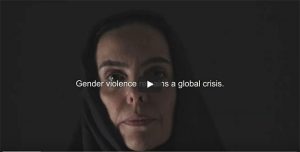IPS – Year End Video, 2024
 30 Desember 2024
30 Desember 2024

By External Source
Dec 28 2024 (IPS-Partners)
The world’s troubles deepened in 2024. Civilians bore the brunt of war.
Violence in Gaza, Sudan, Ukraine, Haiti, and more displaced over 100 million people worldwide.
Over 70% of those killed in Gaza were women and children, according to the UN Human Rights Office.
With critical infrastructure in ruins, an estimated 1 million children are now displaced, according to UNICEF.
In Sudan, 10 million people were displaced by conflict in 2024.
2024 became the hottest year on record, with global temperatures 1.4°C above pre-industrial levels.
Over 2 billion people experienced extreme heatwaves this year.
At COP29, leaders failed to reach a breakthrough on climate finance.
Developing nations are still waiting for the $100 billion pledged annually since 2009.
Floods in the Sahel displaced 2 million people.
Southern Africa’s drought put over 20 million at risk of food insecurity.
Efforts to protect biodiversity also fell short.
1 million species remain at risk of extinction, warns the Intergovernmental Platform on Biodiversity and Ecosystem Services (IPBES).
But hope emerged from renewable energy.
Solar and wind capacity increased by 25% globally, pushing emissions toward a long-awaited peak.
The world now has 281 million international migrants, with remittances exceeding $800 billion annually, boosting economies in low-income nations.
Gender violence remains a global crisis.
Nearly 1 in 3 women worldwide experience abuse, according to UN Women.
Women human rights defenders were targeted and silenced.
In 2024, over 30 journalists were killed covering conflict zones.
Gaza saw the highest number of journalist deaths in three decades.
Haiti’s crisis worsened, with over 700,000 people displaced by gang violence.
Small farms provided 80% of food consumed in Africa, highlighting their critical role in food security.
New breakthroughs in malaria vaccines are expected to save over 10 million lives by 2050.
In Bangladesh, mass protests ousted corrupt leaders.
Dr. Muhammad Yunus hailed the movement as a triumph of “ordinary people’s power.”
The world may feel like a runaway train heading for disaster, but collective action can slow it down.
2024 highlighted our vulnerabilities, but it also reminded us of humanity’s capacity for resilience.
When people unite, they can spark real, transformative change.
Organizations, activists, and individuals are working tirelessly for a better tomorrow.
Every step forward, no matter how small, brings us closer to hope.
2024 tested us all, but it also showed us that change is possible.
2025 is a blank canvas.
Together, let’s paint a brighter future
